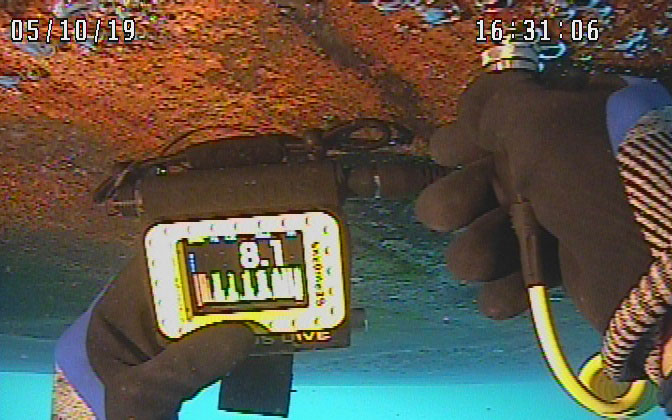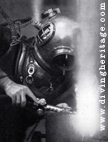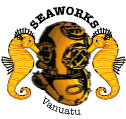SALVAGE:
In-Water INSPECTION:
- REASONS for Inspection
- Survey Inspection EQUIPMENT
- VESSEL In-Water Surveys
- Marine INFRASTRUCTURE Surveys
- MOORING Survey Inspection
- General Survey Inspections
- CORROSION Inspection
- Measuring Metal Thickness
- R.O.V. Inspection
In-Water CLEANING:
- WHY Cleaning? HOW to clean?
- HULL and RUDDER
- PROPELLER (cleaning/polishing)
- Marine INFRASTRUCTURE
- Sacrificial ANODES
- Water JETTING (high and low pressure)
In-Water REPAIRS, MAINTENANCE:
- Shipwork
- Cofferdam
- Marine INFRASTRUCTURE (overview)
- Single Point Mooring System (CALM & SALM)
- Wet WELDING & CUTTING
CIVIL WORKS & ENGINEERING:
- Dredging & Excavation off small BARGE
- Dredging, Jetting, Air-Lift, Dewatering by DIVERS
- Underwater DRILLING & BREAKING
- POST, PIPE, HOLLOW Section PILING with Portable hydraulic Hammer
- Maritime CONSTRUCTION
- Maritime DEMOLITION
- Marine OUTFALLS & Diffusers
- PIPELINES installation & maintenance
- Engineering
SEABED & EARTH ANCHORING:
- Cyclone Anchor Lines for rental

- MOORING Line: what's the (best) choice?
- HELICAL / SCREW Anchors information
- SCREW Anchors Mooring Systems
- PIPELING Anchoring
- Jetty & Walkway FOUNDATIONS screwing
- Expending Rock Anchors
- Grouted Rock Anchors
- Instant Foundation Anchors
- Earth Retention
![]()
![]()
Williams Form Engineering Corporation
- TOWAGE, Dive Support Vessel, Barges:
~ ~ ~ ~ ~ ~ ~ ~
Subsidiaries:
~ ~ ~ ~ ~ ~ ~ ~
Other useful Websites:
Diving
- ADAS Training Courses/job/careers
- New Zealand School of Commercial Diving Training
- Commercial Diving New Caledonia
Nautical Institutions
- IMCA International Marine Contractors Association
- BIMCO Baltic & International Maritime Council
- IMO International Maritime Organization
- Institute of Chartered Shipbrokers
- Institute of Marine Engineering Science and Technology
- International Federation of Shipmasters’ Associations
- International Ship Managers’ Association
- Maritime and Coastguard Agency
- Nautical Institute
- Lloyd’s List
Maritime Information

ABC Diving® Ltd
Port Vila, P.O. Box 3242 VANUATU South PacificComplete Diving Services to Vessels & Civil Engineering Industry
Please, contact us for:
IN-WATER SURVEY INSPECTION (I.W.S.)
In compliance with all major classification societies, ABC Diving performs:

PRE-PURCHASE Survey
DRAFT Survey
ON HIRE / OFF HIRE Survey
CARGO Survey
BUNKER Survey
CONDITIONAL Survey
INSURANCE Survey



For more information about IWS - UWILD please open this page
General Survey Inspections
Seabed survey
Tide and current movement around the base of a structure or pipeline may produce shifting of the seabed levels. Scour may leave portions of a structure (particularly leg bases) or a pipeline unsupported, resulting in movement, rocking, displacement, or even rupture of the structure or pipeline. Scour prevention devices, such as artificial seaweed mats, can effectively prevent or control scouring problems, but regular seabed inspections are still required to check their continued effectiveness.
Debris survey
Debris means any material that should not be there, such as lost fishing nets, anchor cables, wire ropes, girders and scrap material dropped over the side from offshore platforms and vessels.
Debris is a serious problem, not only because it may create a hazard to divers, submersibles and ROVs, but also because it can interfere with corrosion protection systems and may cause fretting, wear and resultant accelerated corrosion.
For these reasons, debris surveys, to locate and record the positions of all debris so that it may later be removed efficiently and safely, are essential.
Every offshore structure has a limit to the amount of weight and wave loading that it can safely endure.
Marine growth survey
(in compliance with NZ CRMS biofouling report requirements)Marine-growth can jeopardise the safety of a structure by increasing not only the weight of the structure itself, but also its surface area, which means that the impact of waves and currents is increased. If marine-growth becomes excessive, important equipment may have to be removed from the deck, or the structure may become unsafe. Regular surveys are needed to help determine when the removal of marine-growth will be necessary.
Such surveys need to measure the thickness of the growth, the amount of the structure that is affected, and whether the growth is 'soft' or 'hard', as each type has different significance due to different weights per volume.
On another hand, more and more countries' requirements are a "clean hull" (e.g. New Zealand) and if a vessel has too much biofouling they may restrict entry, reduce its itinerary, ask you to clean your vessel offshore using an approved treatment or within 24 hours by an approved provider. Such measures being at the expenses of the vessel owner or operator.
You may be interested to know about: our video and still-photography equipment
°°°°°°°°°°°°°°



